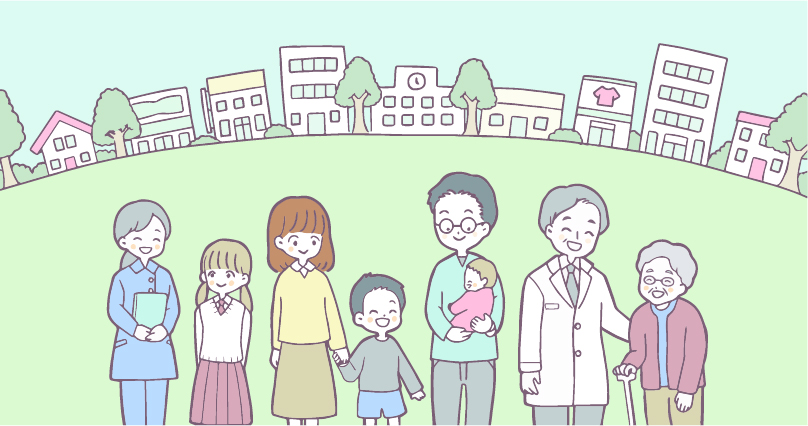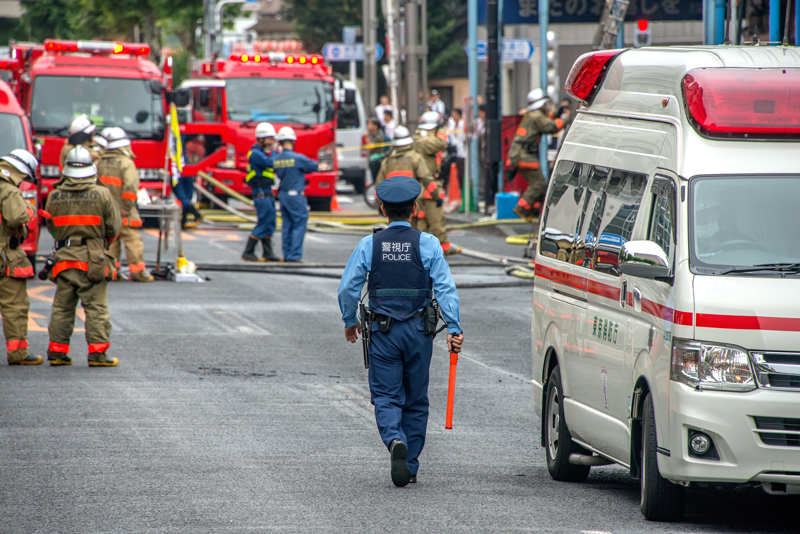Emergency Guide
〜 Safety Guide for Traveling in Japan 〜

For Safe Travel
Japan is a relatively safe country, but unexpected troubles and emergencies can happen.
To travel safely in Japan, let's prepare for unexpected situations.
Unexpected problems can occur while traveling. Being prepared for injuries, illness, natural disasters, and other emergencies will help you stay calm and act appropriately.
This page introduces emergency contact numbers, multilingual hospitals, disaster information gathering methods, and more. Please check this information for a safe and secure trip.

Calling Police, Fire, or Ambulance
In Japan, emergency numbers differ depending on the situation.
| Emergency Type | Phone Number | Specific Examples |
|---|---|---|
| Police | 110 | Theft, loss, missing person, trouble, traffic accident, etc. |
| Fire/Ambulance | 119 | Fire, injury, sudden illness, when calling an ambulance, etc. |
When reporting, you need to accurately communicate your location (address/landmark).
Hotel names, building signs, nearby intersection names, etc. are helpful.
If you're unsure, check your current location using your smartphone's map app while reporting.
Example: "I'm in front of Shibuya Station, near the Hachiko statue."

What to Do When Sick or Injured
If you become ill or injured while traveling, it's important to find a hospital with foreign language support. You can search for medical facilities using the following services:
Hospital Search Sites with Foreign Language Support
- Japan Hospital Search (Multilingual)
http://www.japanhospitalsearch.org/ - AMDA International Medical Information Center
https://www.amdamedicalcenter.com/consaltant
- Bring your passport and travel insurance certificate.
- If you have overseas travel insurance, some hospitals offer cashless medical treatment.
- Over-the-counter medicines are available at pharmacies (drugstores), but consult if you're unsure about taking them.

Natural Disasters: Earthquakes and Typhoons
Japan is a country with many earthquakes and typhoons. When they occur, stay calm, evacuate to a safe place, and get accurate information.
Apps and Sites for Multilingual Disaster Information
- Safety Tips (Official JNTO)
Disaster alerts, evacuation information, action manual included:
https://www.jnto.go.jp/safety-tips/ - Japan Safe Travel (Official JNTO X)
Real-time disaster and transportation information in English: https://x.com/JapanSafeTravel
Basic Actions During Earthquakes
- Protect your head, take a low position, and move to a place where objects won't fall
- Check fire sources and don't rush outside
- Check the latest evacuation information on your smartphone and follow your accommodation's guidance

24-Hour Support Hotlines
The Japan Visitor Hotline is different from tourist information and specializes in "emergency response" such as illness, disasters, theft, and transportation troubles.
Support is available 24 hours with multilingual support, but they do not handle tourist information or general travel questions.
Please use this service when you don't know what to do in an emergency.
Official Japan Visitor Hotline website
https://www.japan.travel/en/plan/hotline/
- Japan Visitor Hotline
Japan National Tourism Organization (JNTO) Call Center
050-3816-2787 (Year-round)
Languages: English, Chinese, Korean, Japanese
Specific Scenarios for Japan Visitor Hotline
- Sudden illness or injury and don't know which hospital to go to
→ They can guide you to medical institutions where foreign languages are understood. They can also handle emergency transport when needed. - Lost your passport and don't know how to contact police or embassy
→ They can guide you to the nearest police station or embassy location and necessary procedures. - Encountered earthquake or typhoon and want to check evacuation sites or situation
→ They provide disaster information in multiple languages. They also guide evacuation centers and public transportation operation status. - Trouble occurred at hotel or transportation and can't resolve it yourself
→ They may provide interpretation support to help communication with facilities when needed. - Victim of theft or pickpocketing and don't know how to handle it
→ They teach you police reporting procedures and how to file theft reports (loss reports).

